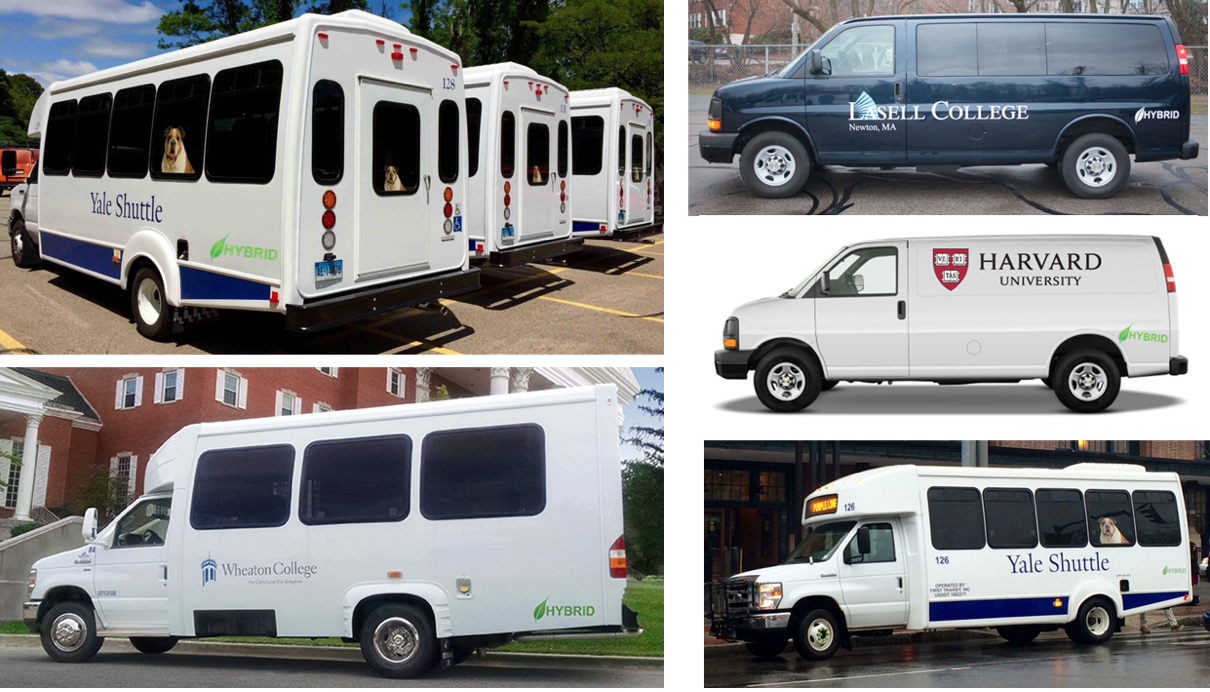University Sustainability is a Team Sport
Many colleges and universities are looking to reduce operational costs, reach sustainability goals, and demonstrate reduction of vehicle emissions on campus.
In the Offices of Sustainability, or the Parking and Transportation Departments, fleet and vehicle service managers often have large economic, environmental, and visual impact to campus sustainability. Ironically, however, a university’s fleet may often be one of the last areas to ‘go green’ on campuses.
Sustainability is of great importance to student bodies, staffs, employees, and alumni, and because these constituents know that sustainability will prove to have a great impact of the future of the college or university. How can universities put these great ideas into action and receive the support needed? Through team effort. Like the many athletic teams on the fields, sustainability is a team effort.
If all the stakeholders aren’t working together, it’s going to be very difficult to achieve these goals. Like with a sports team winning a championship, university sustainability requires a team effort to form new habits, new procedures, and new ways of conducting the day-day tasks on campus. Installing efficient light bulbs, adjusting the smart thermostats, and adding recycle bins around the college grounds, are great initial steps. However, and even bigger win can be the university’s fleet.
The thousands of vehicles that drive in and around campuses across North America are an often overlooked area for widespread, impactful sustainability improvements. Some universities have begun purchasing a few “green” sedans, such as hybrids. Some schools have even deployed an electric vehicle or two. However, while the savings from electrified sedans are nice, they do not compare to the huge environmental impact of improving a vans, trucks and shuttle buses on campus. These larger campus vehicles typically have MPGs in the single digits (e.g. 6-9 MPG), and burn hundreds more gallons of fuel than a sedan.
For example, at Yale University, XL Hybrid’s XL3® hybrid electric system was installed on several of their shuttle buses and has since helped Yale save over 50 metric tons of CO2 in approximately 9 months. This is equivalent to removing 10 cars off the road for a year, switching 1,772 incandescent lamps to LED light bulbs or saving 116 barrels of oil. It is sustainability impacts like these why XL Hybrids systems are currently deployed with many, leading schools such as Penn State, Harvard, LaSalle, MIT, Wheaton College, and more.
XL Hybrids maintains the vehicle’s full factory warranty, and the system doesn’t interrupt daily campus operations, or require driver training. The hybrid vehicle still uses the factory engine, uses the factory transmission, and the vehicle has improved drivability with no impact the vehicle’s cargo capacity or its passenger seating.
All systems are monitored 24/7 by XL Link™, a cloud-based data analytics system, which measures key performance indicators, including MPG performance and reports carbon dioxide emissions reductions.
To help university fleet managers better understand how hybrid electric vehicles and cut fuel use and emissions, XL Hybrids is hosting a free webinar: Proven Quick Wins to Meet Fleet Sustainability Goals. Presenters include Ron Gitelman, Fleet Management Program administrator for Yale University and Matt Bradley, Central Fleet Management Division for Boston Public Works Department. Register today.
About XL Hybrids
XL Hybrids is the leader in connected fleet electrification solutions for commercial and municipal fleets, with technology that delivers a 25 percent increase in miles per gallon and reduces carbon dioxide emissions. Recognized as one of the World’s 50 Most Innovative Companies by Fast Company in 2014, XL Hybrids supports customers such as The Coca-Cola Company and other major fleets. The award-winning XL3® Hybrid Electric Drive System is a revolutionarily simple solution that helps commercial and municipal fleets lower operating costs and meet sustainability goals. Compatible with new and existing Class 2 to 6 commercial fleet vehicles, the XL3 system can be installed in less than six hours. It works seamlessly in the background with zero impact on fleet operations or service, and no driver training or infrastructure requirements. XL Hybrids was founded by MIT alumni and is based in Boston. For more information, visit www.XLHybrids.com or on Twitter @XLHybrids.











